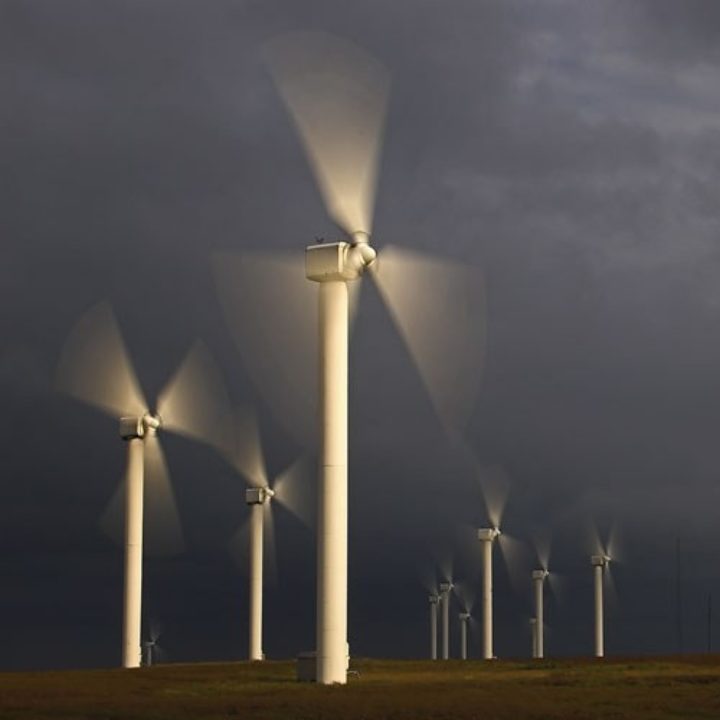Committee fills fracking’s reality vacuum
MPs' report joins the dots on shale gas and climate change - finally
By George Smeeton
Share
Last updated:
By Richard Black, ECIU Director
In reality, fracking has always been a climate change issue.
That’s for the simple reason that methane from shale rock is a fossil fuel; burning it produces carbon dioxide, hence contributes to climate change.

As a fat yellow man on the telly might observe: ‘D’Oh!’
So it beggars belief that no body connected with government and Parliament has previously joined the dots between Britain’s climate policy and its shale gas policy.
Now, one of them has – the Environmental Audit Committee (EAC), in a report that warns: ‘Extensive production of unconventional gas through fracking is inconsistent with the UK's obligations under the Climate Change Act and its carbon budgets regime, which encompasses our contribution to efforts to keep global temperature rise below two degrees.’
Here’s the background.
The UK has a legally binding target of reducing greenhouse gas emissions by 80% from 1990 levels by 2050.
The Committee on Climate Change, the government’s statutory advisor, has calculated the most economically efficient way of meeting this target.
Broadly, the prescription is:
- Make energy use more efficient (ie waste less)
- Replace conventional fossil-fuel electricity generation with a mix of renewables, nuclear, and fossil fuel burning with carbon capture and storage (CCS)
- Expand low-carbon electricity generation and use it to replace direct fossil fuel burning in sectors such as home heating and transport.
There are other specific recommendations for sectors such as heavy industry and farming – but broadly, that’s the recipe.
And it’s not unique to the Committee – the Intergovernmental Panel on Climate Change, for example, having considered a huge number of academic studies, reaches broadly the same conclusion. And it advises that rich countries such as the UK should be ahead of the global game.
In all of these analyses, the electricity sector has a central role to play. Compared with other sectors, technology is available, and at a relatively reasonable price.
Hence the Committee's conclusion that the UK’s electricity sector should be ‘virtually decarbonised’ by 2030. That’s the most economically efficient way to make the cuts - and the target date is just 15 years away.
When you go through the Committee’s figures and ask what ‘virtually decarbonised’ means – as I did three years ago for BBC News – you find that natural gas without CCS can at most produce 10% of UK electricity by 2030.
The Committee’s scenarios envisage natural gas being phased out from other applications such as home heating in the decade or two beyond 2030.
So if you accept the 80% target (as the government does, at least in public), the conundrum for shale gas is this: why would you invest in an industry that has such a limited lifespan? If shale gas is going to be a bit part player at best within 15 years and a closed industry within 35 – what’s the appeal?
Twisted cables
The root of the problem lies in the bizarre, fantasy-land, evidence-free way in which the shale gas ‘debate’ has been conducted in the UK.
Ministers – presumably encouraged by advocates in academia and the media – have either pretended that shale gas is a form of electricity generation, or at least allowed that impression to be created.
Owen Paterson MP suggested as much in his Global Warming Policy Foundation lecture in October, linking shale gas with the necessity of ‘keeping the lights on’ and plugging it as an alternative to renewables.
But the apotheosis was David Cameron’s statement before the Liaison Committee in December, when he vowed that the UK would not subsidise ‘fracking with a guaranteed pence-per-kilowatt hour’ rate – as though a shale gas well were some kind of power station.

In principle, switching from coal- to gas-fired plant can help bridge to a genuinely low-carbon future.
But in the UK, as the EAC points out, it just doesn’t work. The timescale is too tight – and it’s also a specious argument for the government to make when it has just handed coal-fired power stations a subsidy that could allow them to keep operating until 2030 or beyond.
Even industry doesn’t believe in ‘shale electricity’.
After a public event late last year, I asked the chief executive of a well-known fracking company what proportion of UK shale gas he expected to see used for power generation. His response: ‘about 20%’.
The biggest recent investment, by Ineos, is posited on the use of gas in industry, not in electricity. And generators are not leaping over themselves to build new gas-fired power stations.
No energy analyst that I know takes the notion of ‘shale electricity’ seriously. Its significance lies in how it changes the discourse and hence the politics – the hologram of shale-fuelled electricity sucking support from real low-carbon electricity technologies.
How have ministers and advisors, right up to the Prime Minister himself, allowed such a reality vacuum to develop around shale gas?
Real world view
The irony is that there are ways of using British shale gas that would either reduce carbon emissions or, at least, not raise them - provided, of course, that 'fugitive emissions' (gas leaks) are constrained.

One is to substitute it for imported gas, in industry and home heating.
That would allow some use, albeit dwindling, up to around 2040/2050
But it’s by no means certain that shale gas could compete with existing sources on price. Professor Jim Watson, head of the UK Energy Research Centre, for example, believes ‘it is likely that existing sources from the North Sea and abroad will supply the majority of our gas needs for the foreseeable future’.
A second option would be to pipe it to countries where a coal-to-gas transition in electricity generation does make sense. Poland would be the obvious candidate.
A third would be to use it in transport, with liquefied gas replacing diesel for example in heavy goods vehicles.
A fourth would be to establish meaningful support for carbon capture and storage.
Stripped of its attendant hyperbole maelstrom, the real point of the Environmental Audit Committee’s report is this: Britain should have a serious and joined-up conversation around the uses of shale gas now rather than plunging headlong into policies that could, at worst, block achievement of climate change targets and divert billions of pounds of investment into an industry with little future.
It’s extraordinary that it’s taken so long for someone in authority to say it.
Share